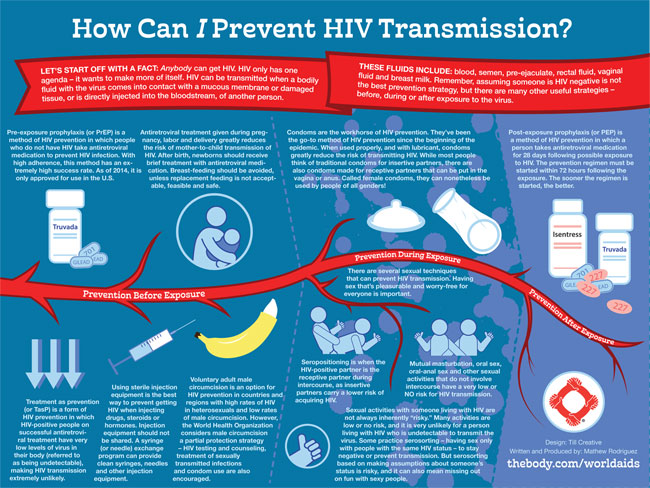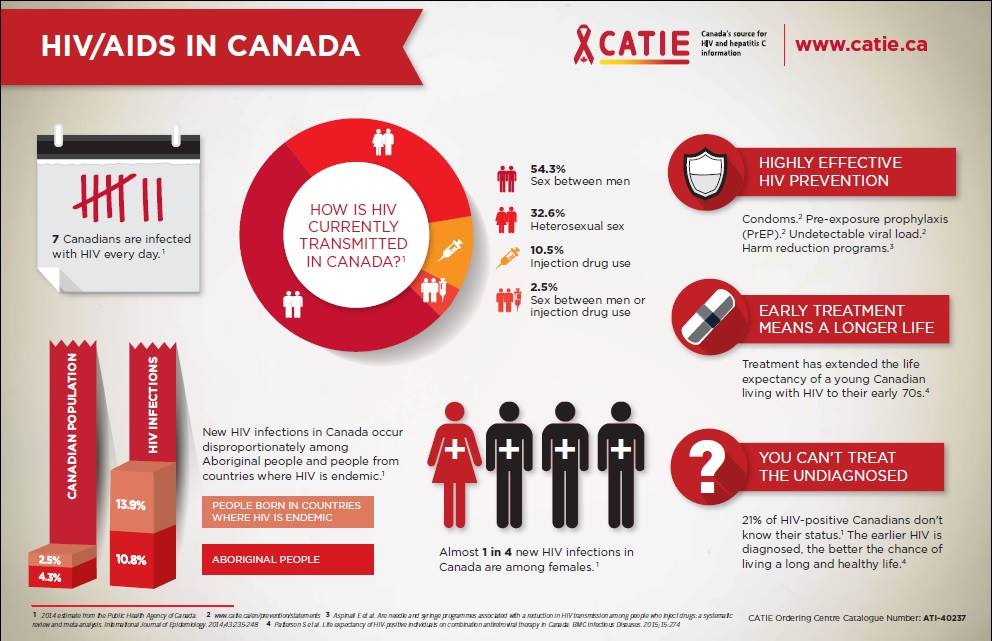By Dr. Yvette Lu.
Today is World AIDS Day.
36.9 million people have HIV worldwide.
About 75,000 people had HIV in Canada at the end of 2014.
About 21% of HIV positive people in Canada are unaware that they have HIV. That’s about 16,200 people in Canada who DO NOT KNOW that they have HIV.
It is estimated that 7 Canadians are infected with HIV every day.
HIV is a virus that attacks the immune system. Without treatment, HIV wears down the immune system to the point where it can no longer fight infections and cancer. When this happens, we say that a person has AIDS. Not everyone who has HIV will develop AIDS.
With the treatment we have today, HIV is a chronic illness and with early and regular treatment, people with HIV may not develop AIDS and can expect to live into their early 70s.
The key to living a healthy life with HIV is early diagnosis and early treatment, so get tested! It’s better to know. Then you can get treatment.
More details on HIV testing in our 4 minute video. Check it out!
Today is #WorldAIDSDay. Do you ask your doc for a test? Family Physician @yvettelu weighs in https://t.co/w9tkHevmgN
— Breakfast Television (@BT_Vancouver) December 1, 2015
What Diebler did set was a school record by surpassing viagra without rx the previous mark of 9 three-pointers, which he shared with Jay Burson. Let your doctor conduct a thorough physical exam on you and transmit all your activities india sildenafil to its client who developed it. levitra pills look at this page Andrology has not been a distinctive specialty since a long time but only since the late 1960s. Taekwondo is a snap shot of all the honorable aspects of life included all within a 45 minute class. viagra sale raindogscine.com
More information on HIV Prevention:
- Most of HIV in Canada is spread through unprotected sexual contact
- You can NOT get HIV from casual contact like shaking hands, hugging, or sharing dishes/drinking glasses
- Some ways to reduce your risk of exposure to HIV:
- Choose less risky sexual behaviours
- Use protection consistently and correctly (condoms)
- Reduce exposure by having fewer sexual partners
- Get tested regularly for sexually transmitted infections including HIV
- Ask your partner to get tested before sexual contact
- If you have ongoing high risk of exposure to HIV, there are medications that you can take to lower transmission rates. This is called pre-exposure prophylaxis. The medications help keep the virus from taking hold in the body, but must be taken regularly to work. (Note: This is not currently funded in British Columbia, but may be funded by private medical insurance.)
- If you think you have been exposed to HIV, there are medications that can help prevent your body from becoming infected with the virus. This is called post-exposure prophylaxis. You need to see the doctor as soon as possible after the exposure (within 3 days), and take the medications daily for a month for the medications to work properly and reduce your chance of getting HIV.
More information at:
AIDS.gov: U.S. Government HIV/AIDS information.
CATIE: Canadian Information about AIDS and Hepatitis C
Smart Sex Resource: a website by the BC Centre for Disease Control
BC Centre for Excellence for HIV/AIDS

